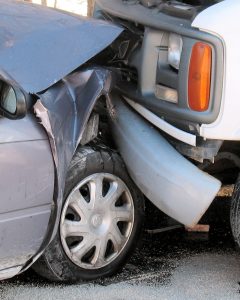Do you like to stay up late binge-watching Netflix? Does your FOMO result in you getting only a few hours of sleep? Does work stress and anxiety leave you tossing and turning? If these things or anything else is keeping you from getting at least seven hours of sleep at night, you are putting yourself and others at risk on the roadway. Just how big is the problem and the risk, consider these statistics:
In the past month, twenty-nine percent of drivers have admitted to driving while they were so tired they could barely keep their eyes open. Researchers estimate 20% of all accidents are directly related to drowsy driving. It only takes missing two to three hours of sleep to quadruple your risk for a crash. That is roughly the same risk as driving drunk! This is why the federal government requires truckers to keep sleep logs — to try and ensure that at least those drivers are getting enough sleep.
According to Harvard Health, we need seven to nine hours of sleep per night, but most Americans are not getting it resulting in decreased mental acuity, irritability and fatigue. And the only cure for sleep deprivation is sleep. Short-term fixes like coffee, going for a walk, a 10 minute cat-nap may help for a very brief period but ultimately your body needs sleep.
Sleep deprivation is an especially serious issue for teens. Teens need more sleep than adults yet they often do not get it. After-work jobs, homework and studying, sports and other extracurricular activities and busy social lives keep teens busier than ever not to mention smart phones often distract teens at bed time or awaken them at night. These stats are why a lot of school districts are moving school start times back by an hour. One study found that teen driving accidents dropped nearly 17% in a county who pushed the high school start time later. Teen drivers are inexperienced drivers and the last thing they (and other drivers on the road) need is to combine their inexperience with sleep deprivation.
Of course, the solution is obvious: get more sleep and reduce your risk of a car accident. But sleep can be elusive for some. Here are a few tips for getting your best night’s sleep:
- Avoid caffeine and alcohol before bed.
- Try to keep the same sleep pattern for weekdays and weekends.
- Limit screen and TV time right before bed.
- Try a meditative tape to help quiet your brain and prepare for sleep.
- Use a scented pillow spray (lavender, chamomile, etc.) to help quickly relax you.
- Exercise improves sleep but do not exercise within 3 hours of bedtime.
- Avoid large meals or a lot fluids before bed.
- Keep your bedroom cool, quiet and dark.
- Replace uncomfortable pillows or mattresses.
- If you snore, get an evaluation as you may need a C-PAP machine.
Not only will a good night sleep help reduce your chance of a car crash, it will also improve your overall health. Sleep deprivation is linked to weight gain and a variety of medical conditions such as stroke, heart attack, diabetes, etc.
If you or a loved one has been injured in a car accident and would like a free-consultation, give us a call at 615-742-4880 (Nashville) or 615-867-9900 (Murfreesboro) or 866-812-8787 (toll-free). Our award-winning lawyers handle all accident cases on a contingency basis so we only get paid if we recover money for you and your family.
 Tennessee Injury Law Center
Tennessee Injury Law Center



